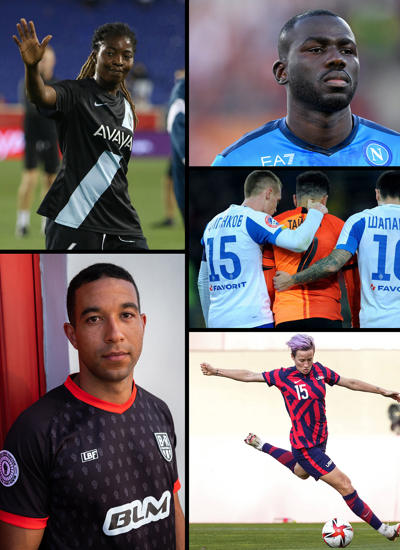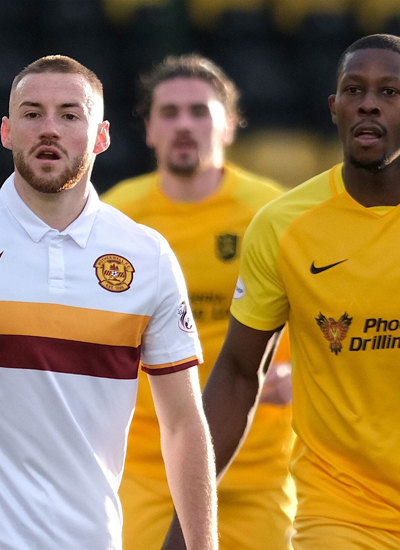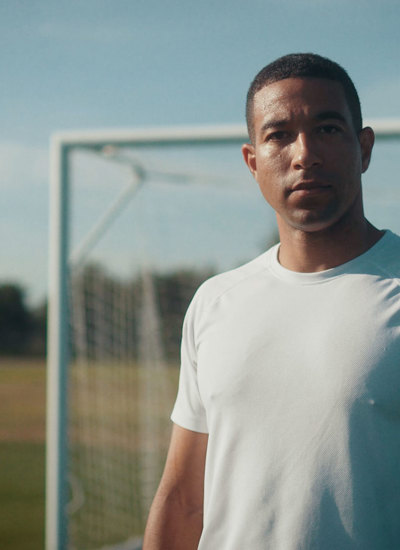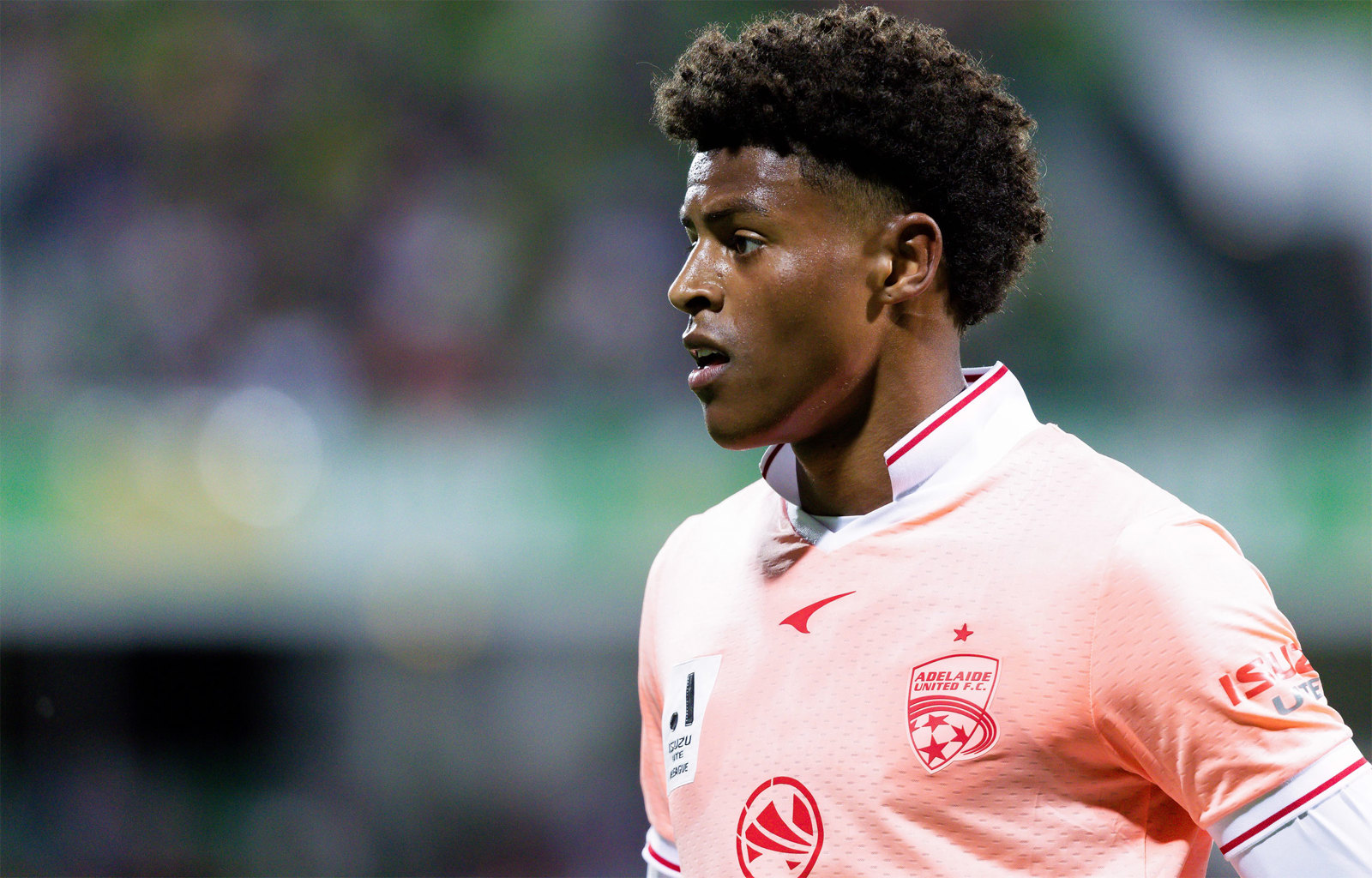
In March, Kusini came off the bench to score his first goal in the A-League. The young forward ecstatically celebrated his strike in front of Melbourne Victory fans, before sealing the 3-1 triumph with an assist to his captain Stefan Mauk.
Unfortunately, Kusini’s outstanding performance was overshadowed by the racial abuse he received on his social media accounts. Months on, he still receives comments of hate speech, an experience that is unfortunately all too common for many footballers in today’s game.

Firstly, when did you first realise that you were receiving racist comments on your Instagram account?
Straight away in the changing room after the game while celebrating I was on my phone and I was getting a lot of messages and comments on my account which weren’t necessarily racist but quite abusive. Later on when we got back to the hotel I noticed my brother had put something up on social media, and I saw someone else had posted a screenshot of the comments – so I didn't see them directly, but that’s when they were first drawn to my attention.
How did you feel in the direct aftermath?
I didn’t feel that bad - it didn’t hurt me too much, I think the fact that they were just comments from anonymous people stopped me taking it to heart.
What is it about the experience that affected you the most? The abuse itself? The publicity of it? Or the fact it was so easy for the perpetrators to do what they did?
I think the last one, it’s just too too easy for anyone online to just go and comment something that could be quite hurtful to others and there's no accountability for their actions.
Your goal against Melbourne Victory marked your first in the A-League. How has this negative experience impacted what should be a positive milestone in your career?
I don't think it affected it too much. I still had a lot of positive messages from family and friends, and everyone is talking about the goal and the celebration and not too much about the racial abuse that I endured, but obviously it took away a little bit of what was a special moment.
Why do you think people feel free to attack you (or other professional footballers) without consequences?
I think it is a bit too easy for people to comment online and some reason the public just kind of thinks that because we're footballers we should be able to just accept it; we just have to take it on our chest. But it's not something that anyone should endure – whether you’re a footballer or not.
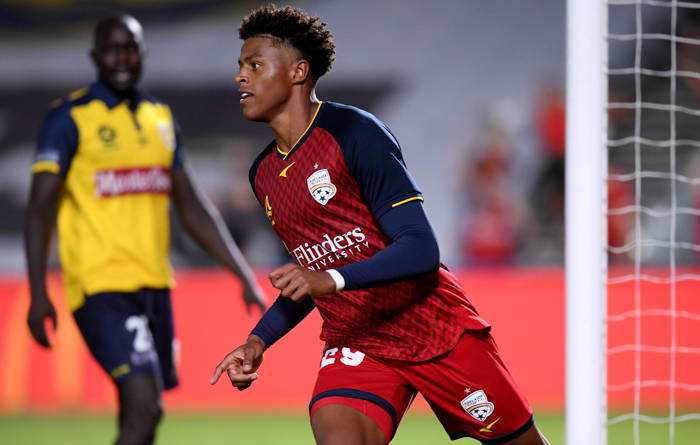
Did you feel supported by the steps taken by both your club and Instagram following this incident?
The club helped me out a lot and made sure I was alright, they looked after me and tried to take the right steps to make things better. It was hard because there wasn't really much that could be done, but I think Instagram probably could do a bit more to devise a way in which people can be held accountable for their actions online. Apart from that though – everything was handled quite well.
Is the issue of online abuse something that is spoken about amongst players?
I guess people who receive this type of abuse probably talk about it with their family and friends. We try to keep the changing room a positive and happy place, so it's not really brought up there. It could probably be discussed a bit more because teammates are there to support each other, look after each other, and we've got each other's back - so maybe it is something that we should talk about to try to find ways to prevent it.
I know a few team mates also copped some abusive comments from some of the same accounts that commented racial abuse to me, and every single game since that Melbourne Victory game I have received racial abuse online after the match.
Unfortunately, incidences of racial bigotry appear to be on the rise on social media in recent times, how would you like to see this being tackled going forward?
I have noticed an increase lately in online abuse, racial abuse as well. I think one of the things that could be done is these platforms on which people are receiving these comments - like Instagram for example – is to have some way where you have to identify yourself when you create an account, such as providing some kind of identification like a driver’s license. That way everyone can be held accountable for their actions and that will hopefully stop people from doing things like this in the future.
Do you have a message to the people who use social media to engage in racism and hate speech?
No-one one likes to be abused. No-one likes to be racially abused. It's not nice, and it doesn't make you a better person - it doesn't make them a better person. Just try to be kind to one another and spread positivity.
